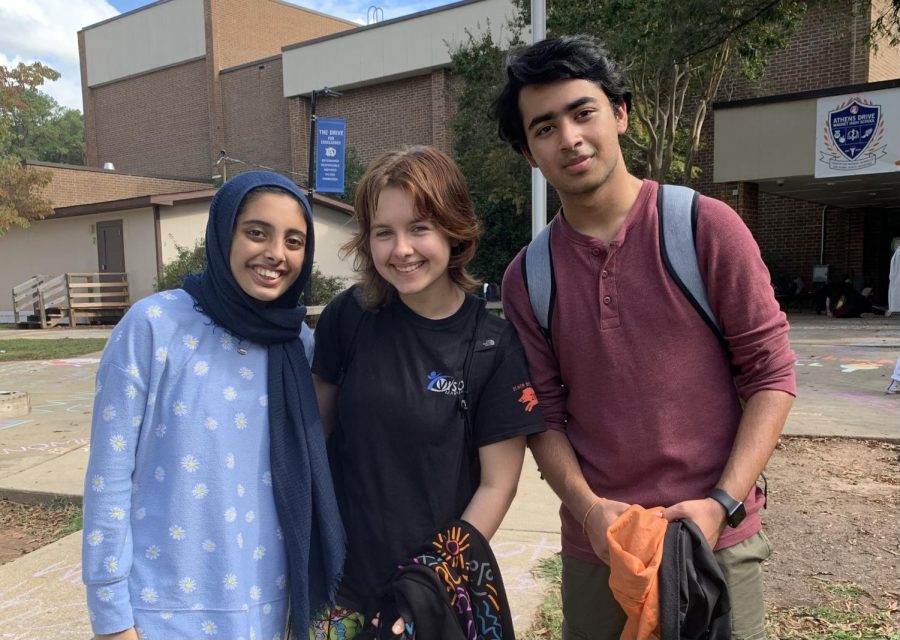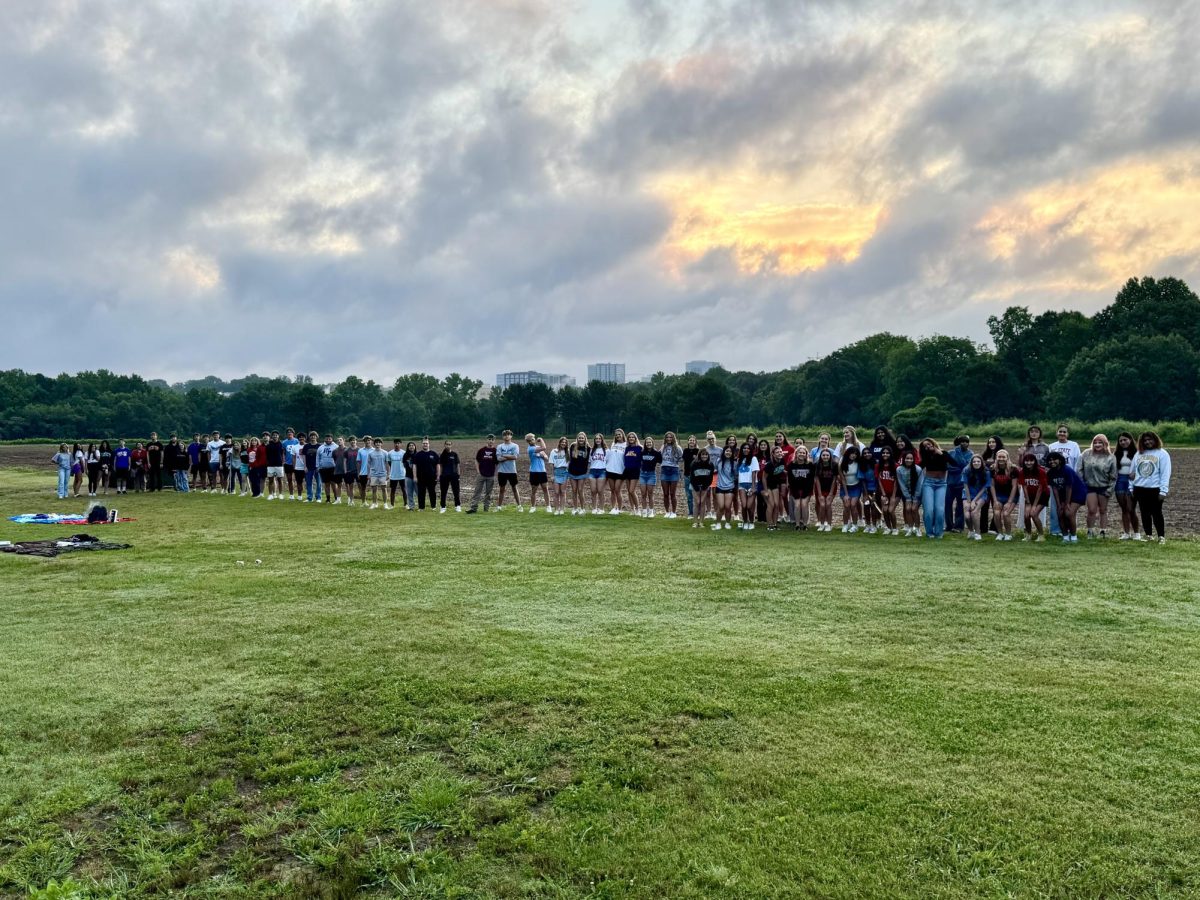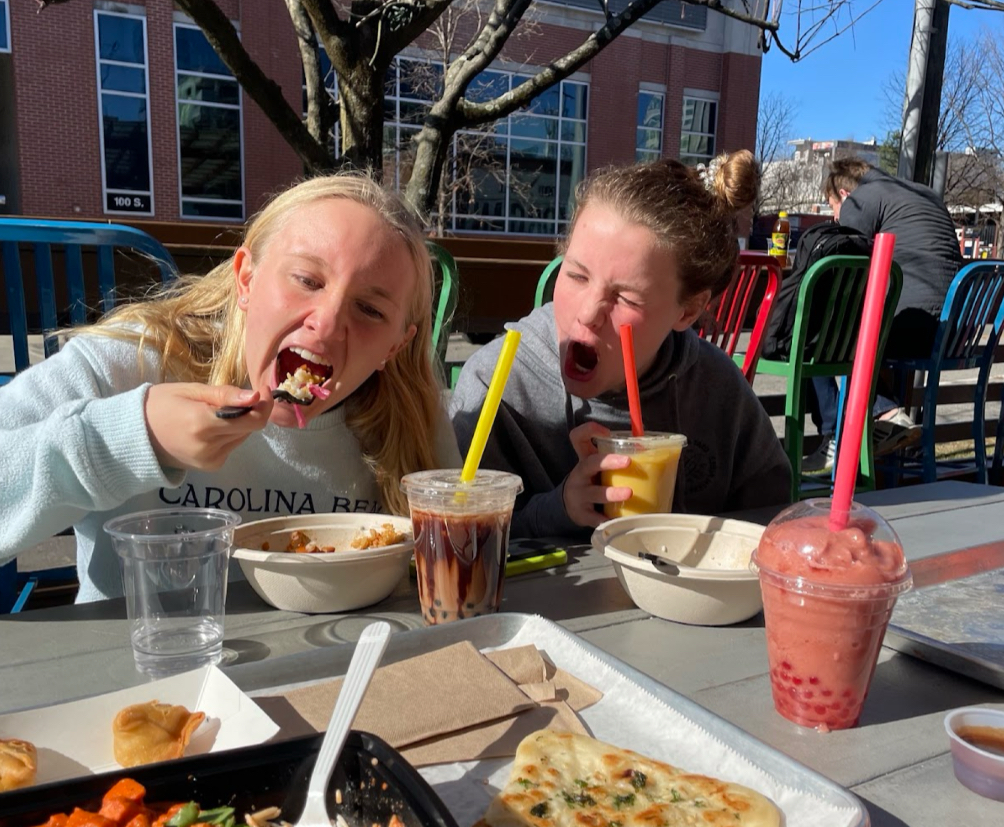Brave, hard-working, independent. All words that have been used, historically, to describe Americans.
Divergent, job-stealing, foreigners. All words that have been used, historically, to describe immigrants.
Immigrants are brave enough to leave their homes in search of a better, yet unguaranteed life. Immigrants work hard enough to earn jobs, make a living, and support themselves and their families. Immigrants are independent enough to live in an unwelcoming country. All of these traits are so dedicatedly American.
So, why is it that immigrants are so regularly regarded as strangers?
Panning over America, moving southeast and narrowing in on Athens Drive, students are feeling the effects of America’s treatment of immigrants.
The Amnesty International Club here at Athens has dedicated this week to speaking out in support of immigrants and bringing attention to the unique challenges faced by immigrants at the Drive, specifically immigrants from Afghanistan.
“Let’s start this conversation with privilege,” said Veronika Juylova, a member of Amnesty International. “I am privileged. I am privileged in the fact that when you look at me, you cannot tell that I am an immigrant. That changes people’s whole perception of me, my actions, and my very being.”
Juylova’s parents, however, are noticeably immigrants. The difference in treatment between Juyloa and her parents is exigent.
“You know they aren’t from here. You treat them as such. Every conversation and interaction, regardless of relevance, begins with ‘where are you from?’,” said Juylova.
The simple difference in looks is enough for a person to be alienated from the rest of society. No matter what background a person comes from, they will always be judged on appearances. This is the issue immigrants deal with on a daily basis: the superficiality of American society.
Juylova, alongside her family, immigrated to the United States from Uzbekistan, a country that borders Afghanistan, in 2005.
Students at Athens with ties to Central Asia, particularly Afghanistan, have recently felt the effects of the political tensions there across oceans.
For 19 years and eight months, the United States was engulfed in a war with the Taliban, a religious fundamentalist group in Afghanistan. It is defined as the longest war in United States history. What seems to go unconsidered, however, is the state of the innocent Afghan citizens. For 19 years and eight months, they were collateral damage to the war.
This year, only four months before the 20-year mark, the United States pulled its troops out of Afghanistan.
This is both good and bad news. The war brought nothing but death and destruction to Afghanistan, so it is a relief that it is over. However, the United States presence in Afghanistan was considered protection from the Taliban. Afghan citizens sided with and supported the U.S. After a 20-year long war, the United States simply left without taking advantage of the ample opportunity to get Afghan citizens out and leaving them to the chaos in their wake.
Now, the admission of Afghan citizens into the United States is up for debate.
Many Americans believe that the entrance of immigrants into the country only makes things harder for the people living here. Jobs are taken up, cultures are altered and comfort zones are interrupted. They believe this even in the face of crisis.
Had the roles been reversed, though, had it been you and I in need of a hand, wouldn’t we want someone to reach out theirs? Why do we allow hostility to overcome generosity?
Other Americans believe that the soul of America lies in the beating hearts of immigrants. At our core, we are all immigrants. All from different places, coming together in one country. They believe that, in the face of crisis, America should be a safe space for immigrants.
“Many Afghani’s are looking to settle down in the United States because of many things, including family safety and opportunity,” said Syed Abbas, a member of Amnesty International. “As an immigrant, myself, I understand what they are going through.”
Abbas’s family moved to the United States in search of better opportunities and, more importantly, a sense of safety.
“Feeling safe, for you and your family, is something natural. Sadly, that just isn’t the case for Afghan citizens,” said Abbas.
Arwa Sattar, a member of Amnesty International, is a child of immigrant parents.
Her parents immigrated to the United States from Pakistan for the same reason most immigrants move here: better opportunities. Back home in Pakistan, it proved difficult for citizens to meet their basic necessities. For many, life was a struggle.
After moving to America, the Sattar family flourished. Not only have they taken advantage of the various opportunities this country has to offer, but they have also found a community where they are comfortable.
“My parents’ experiences with immigration prove how important it is for incoming Afghan refugees to feel welcomed into society,” said Sattar. “Helping out as much as possible for them to be able to feel accustomed and comfortable in a new environment is critical at this difficult time for them.”
Afghan immigrants are seeking refuge, community and security. At a time like this, when immigrants are feeling isolated and alienated, it is necessary for us, as Americans, to provide them a sense of safety and belonging.
“Afghan refugees. Afghan fathers and mothers. Children and cousins. They need help,” said Juylova. “With our hands free and available, why wouldn’t we lend them out? Reach out and support our peers in asylum?”







